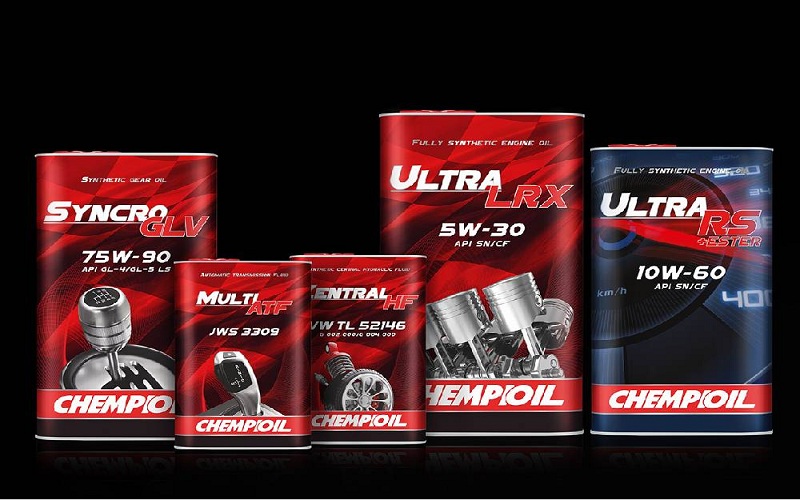
Which Lubricant Label Company Reigns Supreme in Quality?
The demand for high-quality products at reasonable rates has led to a significant increase in the private-label lubricant sector in recent years. Even with the proliferation of private label businesses, which business produces the best lubricant labels and packaging overall? Let’s examine some of the crucial elements that set the leading companies in this cutthroat market apart.
Technology for Digital Printing in
Digital printing technology is one field where innovation has been stimulated. The leading oil label manufacturers have made significant investments in the newest digital printing technology, which enables far more personalized and variable designs than conventional printing techniques. Short-run tasks, versioning, and on-demand printing are made possible by digital printing, giving private label firms enormous flexibility to satisfy their clientele. It is now considered a must for high-quality private-label offerings.
Adherence to Regulated Industries
Liquidator labels have to adhere to stringent regulatory rules for ingredient labeling, recycling codes, warnings, and certifications, just like any other consumer product. A brand’s reputation may suffer and heavy fines may follow noncompliance. The best lubricant labels company are well-versed in handling these rules and staying abreast of any developments.
Before going on sale, their regulatory teams and quality control procedures make sure that private label programs are completely compliant. They also offer continuing auditing, consulting, and support. Private label companies may rest easy knowing that their packaging and labeling will satisfy strict quality and safety standards and be accepted by authorities. The greatest private label partners have compliance down to an easy science, and it’s a basic prerequisite.
Chain of Supply Provision
Another area that sets the best private label companies apart is managing the intricate global supply chain. To cut expenses and efficiently complete orders for their private label clients, they make use of cutting-edge technology and specialized knowledge in logistics. Accurate forecasting and productive manufacturing schedules are made possible by sophisticated inventory and production planning systems.
To enable quick fulfillment anywhere in the world, top-notch facilities are thoughtfully positioned close to important transit hubs. Labels go from design to shelves as soon as feasible thanks to close integration between printing, converting, warehousing, and distribution processes. It also reduces waste. Optimized lead times, adjustable order minimums, and attentive customer support are all advantages for private-label brands.
Ability to Customize and Version
Wide-ranging versioning and customization options are two further benefits offered by leading private label providers. They can develop highly customized designs that are optimized for particular channels, areas, or promotions thanks to their digital printing infrastructure, which offers full flexibility.
Specific SKU arrangements, multilingual labels, private coded labels, and promotional variants like rebranded store brands or limited edition designs are all advantageous to private label brands. Databases for centralized product information allow for the easy management of complex versioning.
In-depth segmentation tactics are made possible by this degree of personalization. When centralized production is kept efficient, private label lubricants may craft a customized brand experience for each customer interaction point. It is an effective strategy that helps brands establish closer ties with a range of consumers.
Innovation in Packing
These businesses are pioneers in creating cutting-edge secondary packaging options in addition to labels. The R&D teams create structures that are optimized for performance, protection, and shelf appeal, ranging from specialized plastic containers to sustainable paper-based cartons.
Private labels can challenge established players in new markets by using innovative formats such as pouches, bags, and bag-in-box arrangements. Modest evidence, product freshness indicators, and interactive QR codes are just a few examples of intelligent packaging features that improve the user experience.
Private labels have first dibs on the newest packaging innovations through partnerships with these providers. Maintaining a lead on trends and customer expectations is a major benefit. Leading brands are transforming product delivery through innovative packaging design.
Safeguarding brand identity and preventing imitation
Secure and authentic brands are more crucial than ever with the growth of private labels. Elite private label organizations safeguard their clients’ brands by utilizing cutting-edge authentication methods including forensic tagging, serialized tracking, and covert markings.
Counterfeiters find it nearly impossible to authentically copy hidden features such as embedded security pictures, specialized inks, micro text, and microprinting. Back to the individual digital labels and packaging run, forensic tagging enables product authentication.
Brands can view their supply chains in real-time with the help of centralized digital monitoring solutions. It is possible to promptly detect and deal with any suspicious activity. Both customers and private brands can feel secure knowing that these anti-counterfeiting procedures exist.
Individualized Business Intelligence
Sound decision-making requires actionable data and analytics. Customized business intelligence dashboards and reports are provided by top private-label suppliers.
Businesses may see business drivers holistically when supply chain, consumer insights, sales performance, and other operational data are integrated. Utilizing replenishment and dynamic forecasting techniques maximizes stock levels.
Finding development prospects is aided by category analysis and competitive benchmarking. Private labels can enhance their worth and optimize their tactics over time with the help of recommendations supported by data.
Consulting for Strategy
Through strategic advising services that are also provided by top private label partners, exceptional quality is anticipated. When expanding their portfolio into new categories or regions, seasoned brand managers offer advice.
Distribution, in-store placement, and promotional planning are areas in which the merchandising and sales teams excel. Marketing agencies with a creative bent create roadmaps for integration.
Regulation experts maintain compliance with private brands as regulations change. Reducing environmental effects is advised by sustainability leaders. Ultimately, aspirational private labels can accomplish their long-term commercial objectives with the aid of strategic consultation.
Conclusion
Rapid evolution is still occurring in the private label industry. Many businesses are capable of creating excellent fundamental programs, but very few private label partners have proven to have the vision and will to lead via ongoing investments in people, procedures, technology, and sustainability.
Others try to meet their new level of focus on the client experience from beginning to end, which they achieve through innovative packaging, specialized solutions, creative services, regulatory knowledge, and nimble operations. Having a strong competitive advantage allows private label companies to compete and grow for many years to come when they partner with these full-service suppliers. The three pillars of these elite private-label suppliers will always be quality, service, and collaboration.


